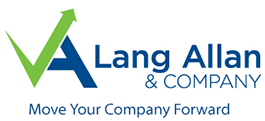A company’s financial managers are responsible for accurately reporting all of the organization’s financial activities. They confirm this accuracy in the financial statement assertions, which are explicit or implicit assertions a company makes concerning the fundamental accuracy of the information contained in its financial statements: the balance sheet, income statement, and cash flow statement.
These assertions are the company’s official statement that the figures in the financial report are a truthful presentation of its assets and liabilities following the applicable standards for recognition and measurement of such figures. Assertions are required in the following six areas:
- Completeness: the assertion that the financial statements are thorough and include all necessary items for the reporting period.
- Existence: the assertion that all assets, liabilities and shareholders’ equity balances on the balance sheet actually existed on the date of the statement.
- Rights and obligations: the assertion that all assets and liabilities included in the financial statements are owned by the company and not by a third party.
- Valuation: the assertion that the amounts presented in the financial statements are accurate and based on properly valuing the balances and/or transactions based on their net realizable value.
- Cutoff: the assertion that all transactions and events are recorded in and reported for the correct accounting period.
- Presentation and disclosure: the assertion that all appropriate information and disclosures are included in the organization’s financial statements and presented fairly.
The Chief Financial Officer’s Responsibilities
To ensure the assertions in the financial reports are accurate and compliant, the company’s CFO should preemptively assess all internal controls before the reports are closed by asking the following questions (download this checklist):
- Is a generally accepted accounting principles checklist being used by everyone who has a role in the review process?
- Are the consolidating schedules being reviewed by management?
- Are eliminating entries being reviewed by management?
- Are intercompany account balances being reconciled?
- Are the minutes from meetings of the board, the finance committee, the audit committee, etc., being reviewed?
- Are trial balances and account reconciliations being reviewed appropriately?
- Are all manual journal entries being reviewed prior to entry into the general ledger?
- How is department revenue comparing to budgets and forecasts?
- Are all required footnote disclosures being included?
- What controls are in place to:
- Ensure clerical accuracy?
- Ensure timely reconciliations and entries?
- Prevent duplicate journal entries?
- Map trial balances?
- Identify and correct eliminating entries?
- Monitor and report cash receipts?
- Is the company’s bookkeeping and other software performing as required to ensure complete and accurate reporting?
Keep in mind that these are general questions that relate to all financial statement reporting. Companies should be sure to include relevant industry-specific questions on this list.
A company’s financial statements reflect the story it tells the general public, so their truth and accuracy are key. By answering these questions and others like them, the company’s CFO has the opportunity to correct any flaws. The end result of proactively implementing this type of system is that the CFO can be confident that the right internal controls are in place to ensure fair and accurate financial reports.
This is just a plain-language summary of complex legal and financial responsibilities. When it comes to financial reporting, work closely with us.
